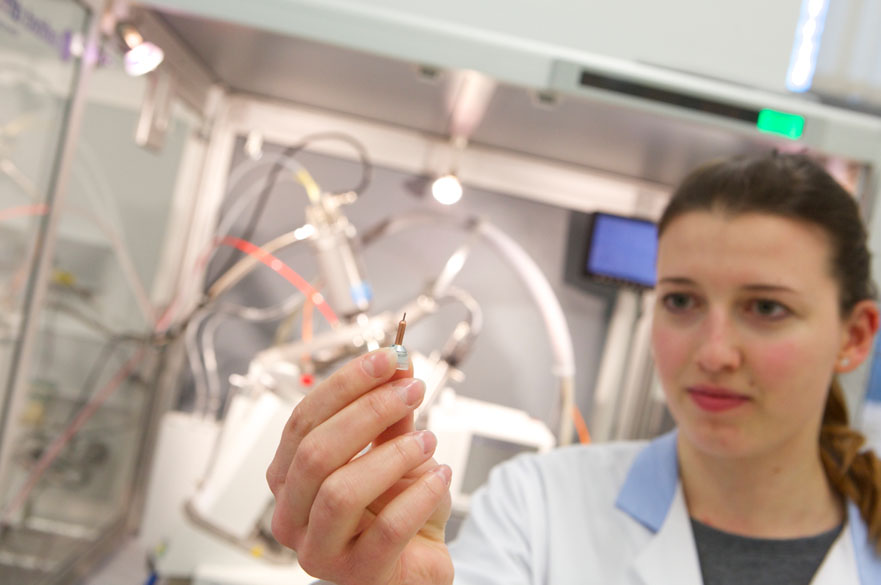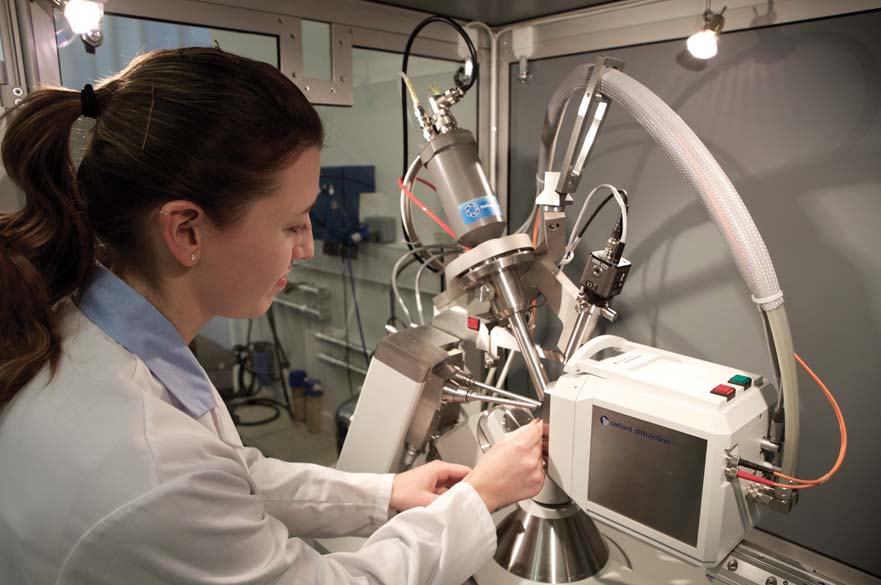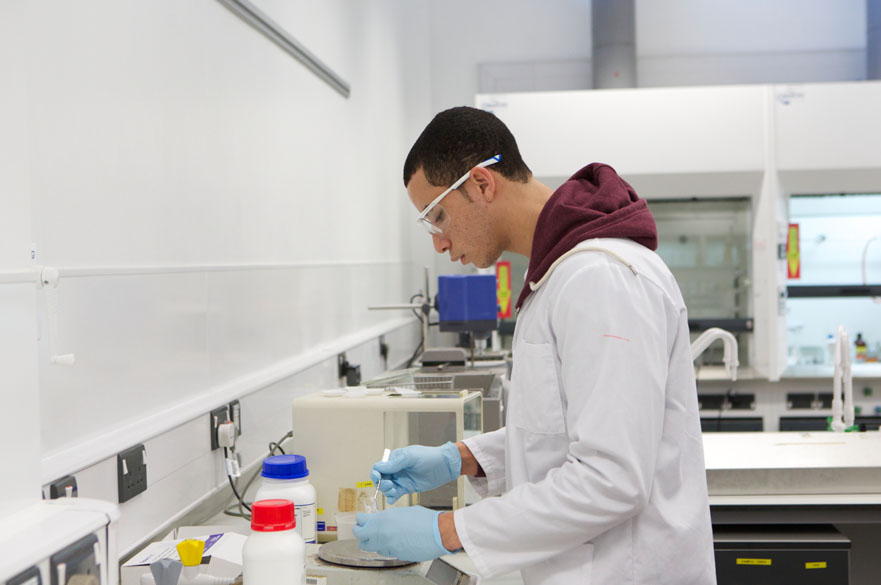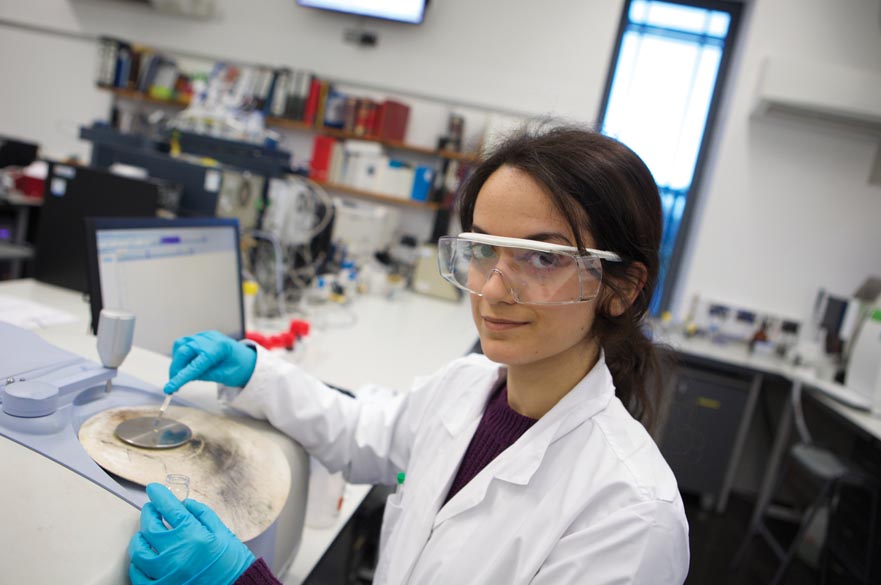Forensic Science MSc
About this course
If you have a strong chemistry or forensics background and want to gain more specialised knowledge of forensic toxicology or bioarchaeology, this course is for you.
If you are looking to further yourself as a forensics expert, this course will provide you with an understanding of current legislation and legal procedures impacting professionals, recognising constraints and opportunities. You will gain deep knowledge and experience of relevant forensics techniques, gaining hands-on experience from experienced practitioners.
What you’ll study
You will be taught six modules before conducting a research project in your chosen specialism. Modules you'll study will include:
Research Methods and Independent Study (20 credit points)
This module provides an underpinning in research skills relevant to independent study. You will be introduced to the techniques required to formulate a research project and to carry out a literature review. You will be given practice using the library and learning resources, including relevant IT packages.
Forensic Expert (20 cp)
Gain professional awareness of the legal standards for the presentation of expert evidence in court, including the duties and liabilities of the expert witness.
Bioarchaeology (20 cp)
You will look at the recovery of bodies in missing persons and unexplained death scenarios, including search, recording, recovery and the evidential significance of plants, pollen and soils.
Biometrics and Forensic Databases (20 cp)
Gain an overview of identification, authentication and verification techniques, with an introduction to the theory of database systems and the legal and moral implications of database use.
Advanced Topics in Forensic Science (20 cp)
The focus will be on the forensic industry's current topics, including regulatory subject areas.
Research Project (60 cp)
You will work on laboratory-based research and will evaluate and review the scientific literature relevant to the topic. You will design and conduct experimental work and present the findings in a presentation, poster, and a written thesis. Examples of project titles:
- Investigating Anaphylaxis and the Contribution of Cross-Reactivity of Allergens in Sudden Death
- Factors Affecting the Rate of Digestive Transit and Techniques to Help Characterise Liquid Content of Stomach for Investigation of Sudden Death in Children and Vulnerable Adults
- Techniques to Refine and Standardise Scent Dog Training for Police Officers
- Factors Contributing to the Rise of Acid Attacks
Optional modules - choose one:
Analytical Toxicology (20 cp)
Develop a working knowledge of various drug separation and detection techniques and the application of analytical approaches to detect and quantify drugs and metabolites in biological fluids and tissues. You'll review the use of abuse of substances used as both medicines and poisons.
International Environmental Crime (20 cp)
Explore threats and activities that occur illegally across international borders and jurisdictions. You will develop a global awareness when looking at a range of environmental scenarios and consider the context of the ethical and legal frameworks in which these events may be assessed and investigated.
Alongside your study, you also have the opportunity to learn a new language. The University Language Programme (ULP) is available to all students and gives you the option of learning a new language or improving the skills you already have. Find out more about the ULP.
We regularly review and update our course content based on student and employer feedback, ensuring that all of our courses remain current and relevant. This may result in changes to module content or module availability in future years.
Don’t just take our word for it, hear from our students themselves
How you're taught
This programme is will be delivered by a combination of traditional lectures, seminars and tutorials, together with laboratory classes and laboratory based research project.
If you are a full-time student, you will have the opportunity to carry out a research project in a forensic research group at Nottingham Trent University or with one of our industrial, academic or government sector partners.
You will be assessed on a variety of components including:
- written exam
- oral presentation
- assignment
- poster presentation
- research project.
How you're assessed
Coursework (75%), written (8%) and practical (17%)
Contact hours
Lectures / seminars / workshops (20%) and independent study (80%)
Careers and employability
At Nottingham Trent University, we know that your employability and job prospects are crucial factors in your choice of university. You need to know that your postgraduate degree will be worth the time and money you spend on it.
Our strength lies in the relevance of our degrees to the real world. In all subject areas, we encourage you to recognise your transferable skills and their application to many careers. By taking an MSc in Forensic Science, you will benefit from the progressive development of various skills, such as advanced laboratory techniques and the critical analysis and synthesis of breadth and depth of relevant forensic-specific research.
This Master will enable you to enter more senior roles within police services, government bodies and private companies in roles such as:
- senior forensic scientist
- DNA analysts
- crime and data analysts
- laboratory directors
- analytical chemists
- casework examiners
Please note, for roles within the UK police service the recruitment process involves security vetting. All security clearances require you to provide evidence that you have been resident in the UK for at least three of the last five years.
This course provides a good basis for you to progress onto a PhD.
Although this Forensic Science postgraduate degree does not offer a formal placement, it is vocationally focused and benefits from strong links with industry.
Re:search Re:imagined
To us, research is about more than writing papers and proposing new ideas. By daring to think differently, we’re disrupting the research landscape and finding the answers to the questions that matter. From conservation management to sustainable farming, we’re inspiring the brightest minds to rise and find solutions to some of the most significant global challenges facing society.
NTU Enterprise
You'll also have the opportunity to turn your ideas into a viable business with help from NTU Enterprise, NTU's purpose-built Centre for Entrepreneurship and Enterprise, a support centre to help students create, develop and grow their businesses.
Campus and facilities
You’ll mainly be studying in the Erasmus Darwin Building and Crime Scene Training Facility with access to facilities including a documentation Examination lab, a ballistics lab and digital fingerprinting equipment.
Our self-contained, community-focused Clifton Campus has been designed to keep students busy between lectures. Catch-up with your course mates in the Pavilion’s barista café and Refectory; brainstorm group presentations in chic and stylish study spaces; enjoy some proper R&R in The Point, home of our Students’ Union. The campus also hosts the multimillion-pound Clifton Sports Hub, offering great options for everyone — whatever your interests, and however competitive you’d like to get!
You’re also right next to the bright lights of Nottingham — one of Britain’s top 10 student cities, and one of Europe’s top 25. All through termtime, a dedicated on-campus bus service will get you to the heart of the action (and back) in under 25 minutes. You’ll find a city stuffed with history, culture, and well-kept secrets to discover at your leisure: enjoy lush green spaces, galleries, hidden cinemas and vintage shopping by day, and an acclaimed food, drink and social scene by night.
Take our virtual tour to get a real feel for the campus.
Entry requirements
UK students
Academic entry requirements: 2.2 honours degree in Forensic Science or equivalent in a related subject such as Chemistry, Forensics, Pharmacology and Pharmacy.
Applicants with relevant employment experience or other relevant qualifications will also be considered.
Additional requirements for UK students
There are no additional requirements for this course.
Other qualifications and experience
We welcome applications from students with non-standard qualifications and learning backgrounds and work experience. We consider credit transfer, vocational and professional qualifications, and any work or life experience you may have.
You can view our Recognition of Prior Learning and Credit Transfer Policy which outlines the process and options available, such as recognising experiential learning and credit transfer.
Getting in touch
If you need more help or information, get in touch through our enquiry form.
International students
Academic entry requirements: 2.2 honours degree in Forensic Science or equivalent in a related subject such as Chemistry, Forensics, Pharmacology and Pharmacy.
Applicants with relevant employment experience or other relevant qualifications will also be considered.
We accept equivalent qualifications from all over the world. Please check your international qualifications on our international entry requirements page.
English language requirements: See our English language requirements page for requirements for your subject and information on alternative tests and Pre-sessional English
Additional requirements for international students
There are no additional requirements for this course.
English language requirements
View our English language requirements for all courses, including alternative English language tests and country qualifications accepted by the University.
If you need help achieving the language requirements, we offer a Pre-Sessional English for Academic Purposes course on our City campus which is an intensive preparation course for academic study at NTU.
Other qualifications and experience
We welcome applications from students with non-standard qualifications and learning backgrounds and work experience. We consider credit transfer, vocational and professional qualifications, and any work or life experience you may have.
You can view our Recognition of Prior Learning and Credit Transfer Policy which outlines the process and options available, such as recognising experiential learning and credit transfer.
Sign up for emails
Sign up to receive regular emails from the International Office. You'll hear about our news, scholarships and any upcoming events in your country with our expert regional teams.
Getting in touch
If you need advice about studying at NTU as an international student or how to apply, our international webpages are a great place to start. If you have any questions about your study options, your international qualifications, experience, grades or other results, please get in touch through our enquiry form. Our international teams are highly experienced in answering queries from students all over the world.
Policies
We strive to make our admissions procedures as fair and clear as possible. To find out more about how we make offers, visit our admissions policies page.











